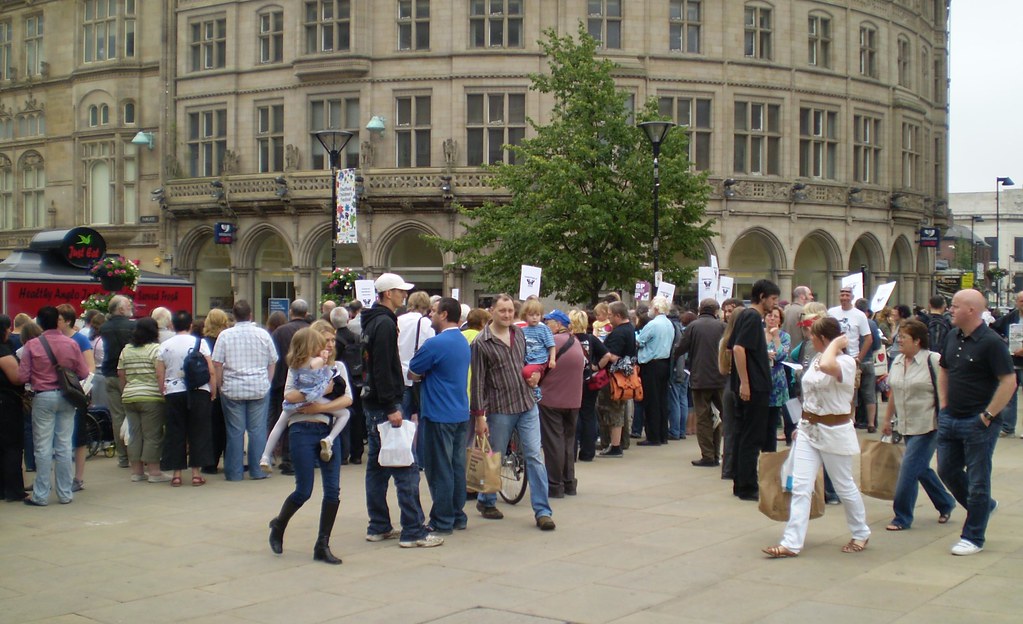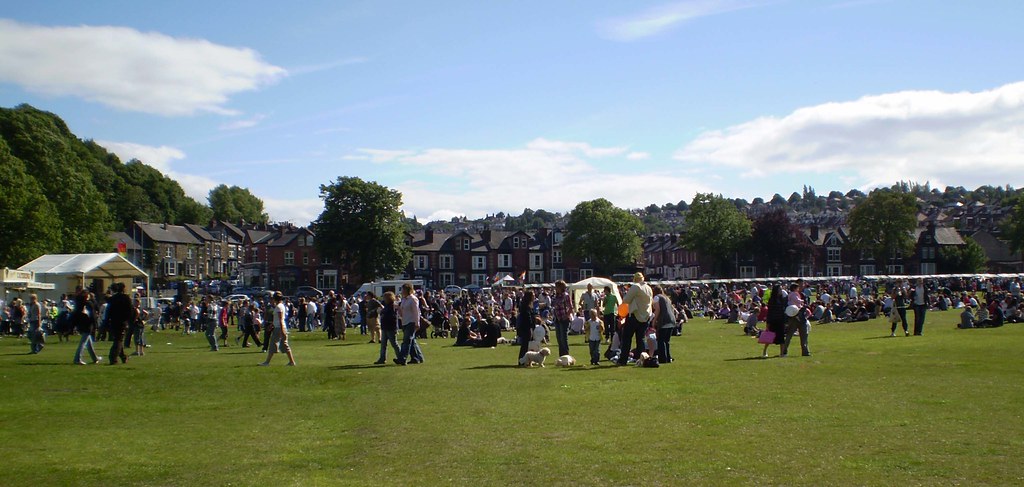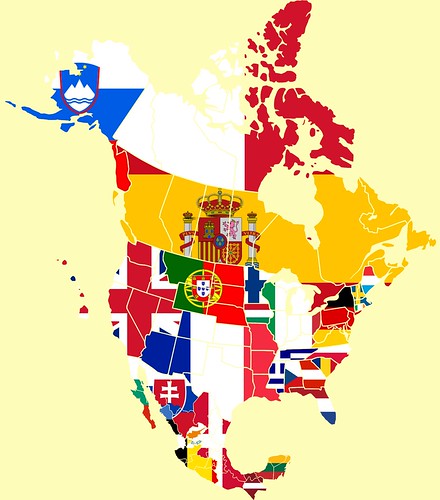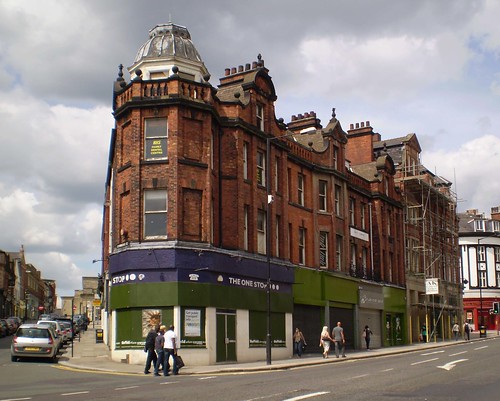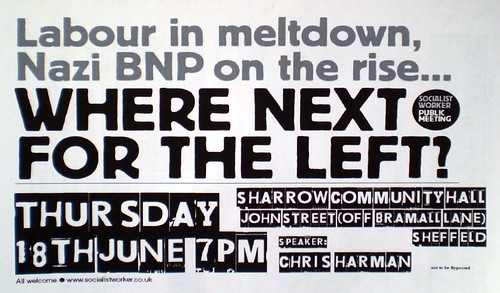I went to Liverpool yesterday, and it's great to see a city taking advantage of the buildings it has. The urban fabric is so dense and well-used in the city center it makes Sheffield look like a warzone with so many demolished buildings and so much underused land. Liverpool still has the threat of demolitions under the Pathfinder scheme hanging over some areas, but other parts of the same scheme aim to rebuild and restore the existing urban makeup. Sheffield seems content to lose buildings one by one, slowly letting the fabric of the city disintegrate, with no good plan for knitting it back together. The main roads into and around the center speed up this process, cutting the city into smaller chunks that no longer fit with one another in a meaningful way.
The lastest casualty of these process is the large white art deco building on Penistone Road, on the site of the old Philadelphia Works. Previously an industrial workshop, it has become run down and mostly abandoned. Plans to demolish the building and 'redevelop' will be decided on Tuesday. The proposed replacement is four throwaway buildings, built in cheap industrial estate style that will bring little activity into the area. This isn't redevelop at all, as the buildings will be used up in 25 years' time, and we'll be back to where we are now having missed the chance the first time round.
This site deserves more. It's a riverside plot, near to the Kelham Island developments, and only a couple of hundred meters from the tram. It should be easy to find a new use for the main building, and there is enough space for a new build also. So why is it to be demolished, with a less intensive replacement in its place? Well, three reasons will probably suffice.
The first is that the area is cut off from the rest of the city, bounded one two sides by busy roads. It doesn't connect with either Kelham Island or even theother side of Penistone Road. It been isolated by poor traffic planning which values cars above people and the city.
The second is that there's no overall plan for this area, and so when one plot like this becomes available, it's simply recycled into industrial use. A wider vision for this part of the riverside and the lower end of Penistone Road would put it into a context where its value was easier to see.
The third, and probably the worst, is that the city council has allowed residential and office property to become overbuilt. Rather than restrict developments in size so that the market would keep pushing for new sites to be developed, both are quite saturated, and even the new schemes in the city center won't immediately find tenants.
I know it's only one building, but it's a symptom of a bigger problem in Sheffield, and we'll keep seeing buildings lost until it's put right. The city needs a better vision for its future, and not just a patchwork of development that fails to deal with the current fragmentation.
The lastest casualty of these process is the large white art deco building on Penistone Road, on the site of the old Philadelphia Works. Previously an industrial workshop, it has become run down and mostly abandoned. Plans to demolish the building and 'redevelop' will be decided on Tuesday. The proposed replacement is four throwaway buildings, built in cheap industrial estate style that will bring little activity into the area. This isn't redevelop at all, as the buildings will be used up in 25 years' time, and we'll be back to where we are now having missed the chance the first time round.
This site deserves more. It's a riverside plot, near to the Kelham Island developments, and only a couple of hundred meters from the tram. It should be easy to find a new use for the main building, and there is enough space for a new build also. So why is it to be demolished, with a less intensive replacement in its place? Well, three reasons will probably suffice.
The first is that the area is cut off from the rest of the city, bounded one two sides by busy roads. It doesn't connect with either Kelham Island or even theother side of Penistone Road. It been isolated by poor traffic planning which values cars above people and the city.
The second is that there's no overall plan for this area, and so when one plot like this becomes available, it's simply recycled into industrial use. A wider vision for this part of the riverside and the lower end of Penistone Road would put it into a context where its value was easier to see.
The third, and probably the worst, is that the city council has allowed residential and office property to become overbuilt. Rather than restrict developments in size so that the market would keep pushing for new sites to be developed, both are quite saturated, and even the new schemes in the city center won't immediately find tenants.
I know it's only one building, but it's a symptom of a bigger problem in Sheffield, and we'll keep seeing buildings lost until it's put right. The city needs a better vision for its future, and not just a patchwork of development that fails to deal with the current fragmentation.
